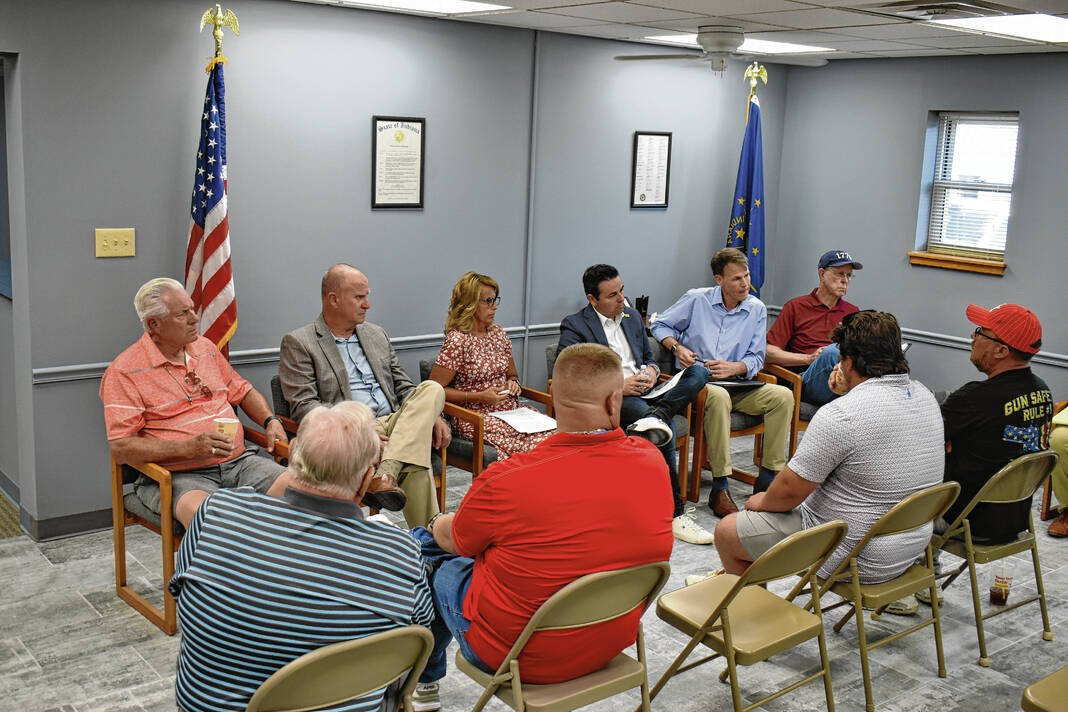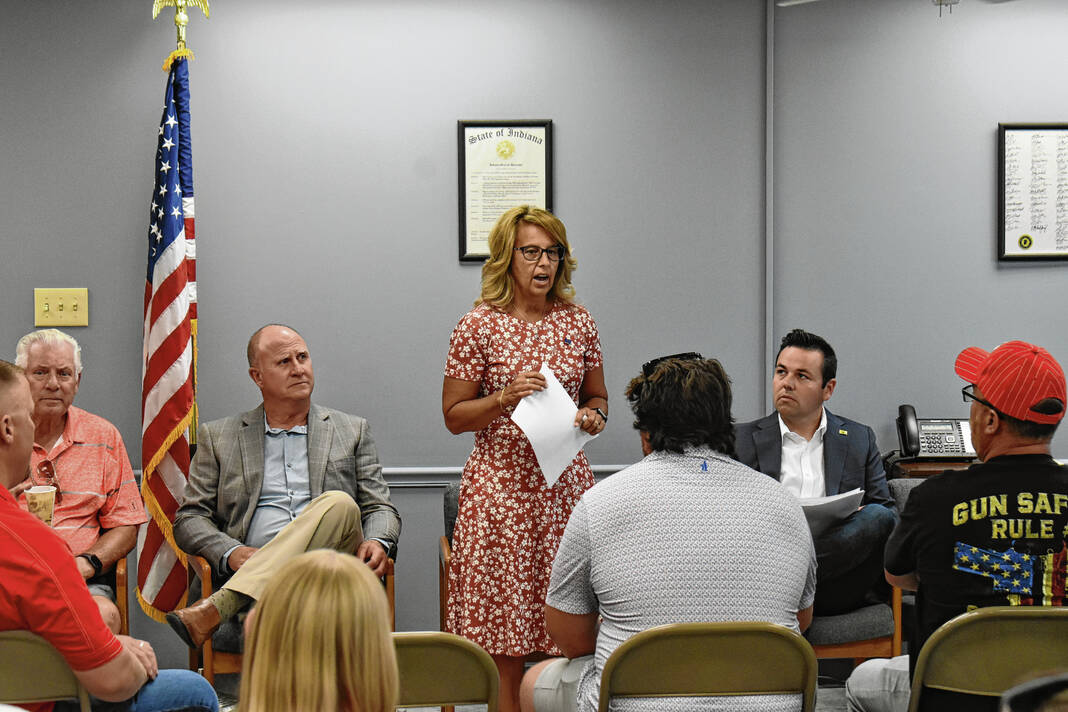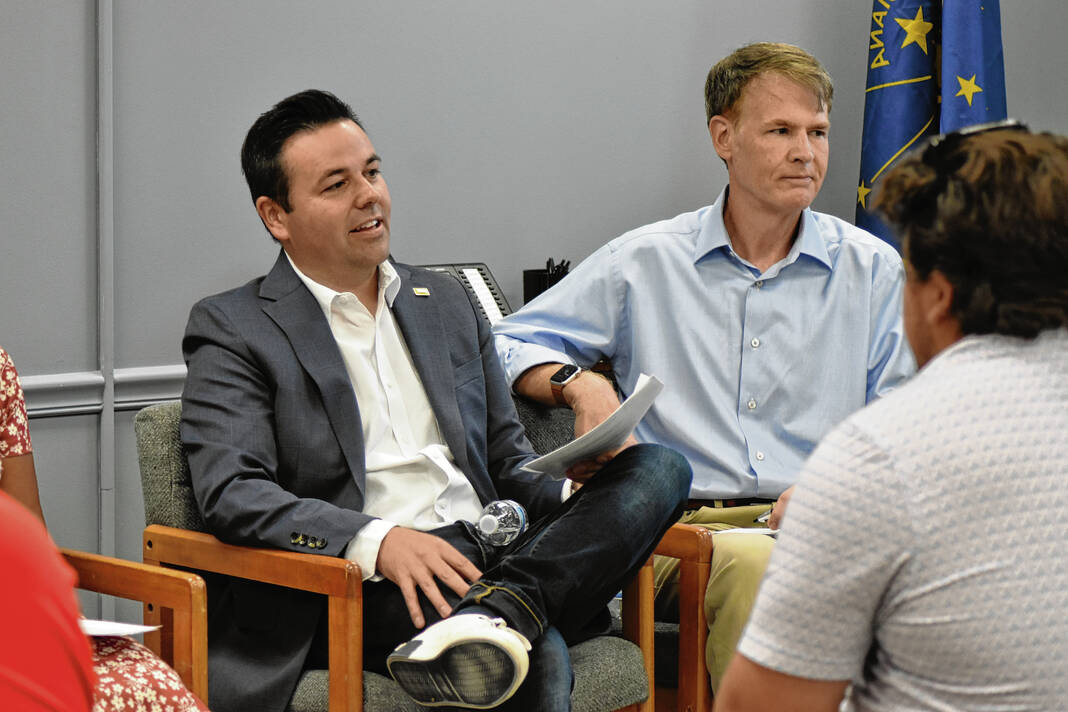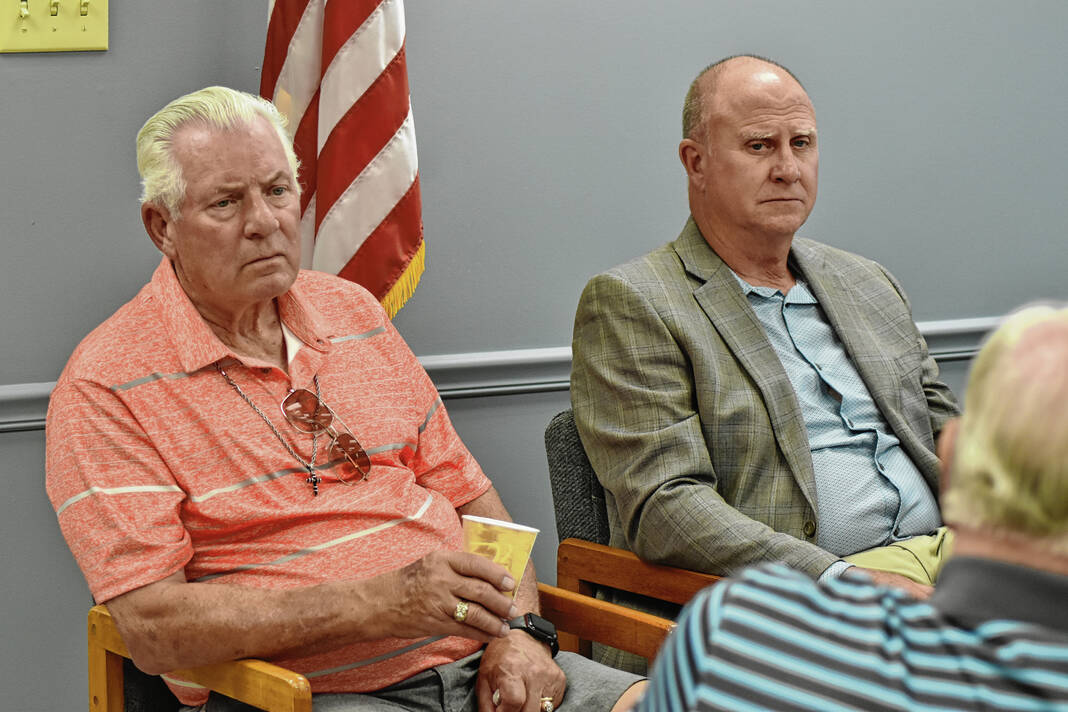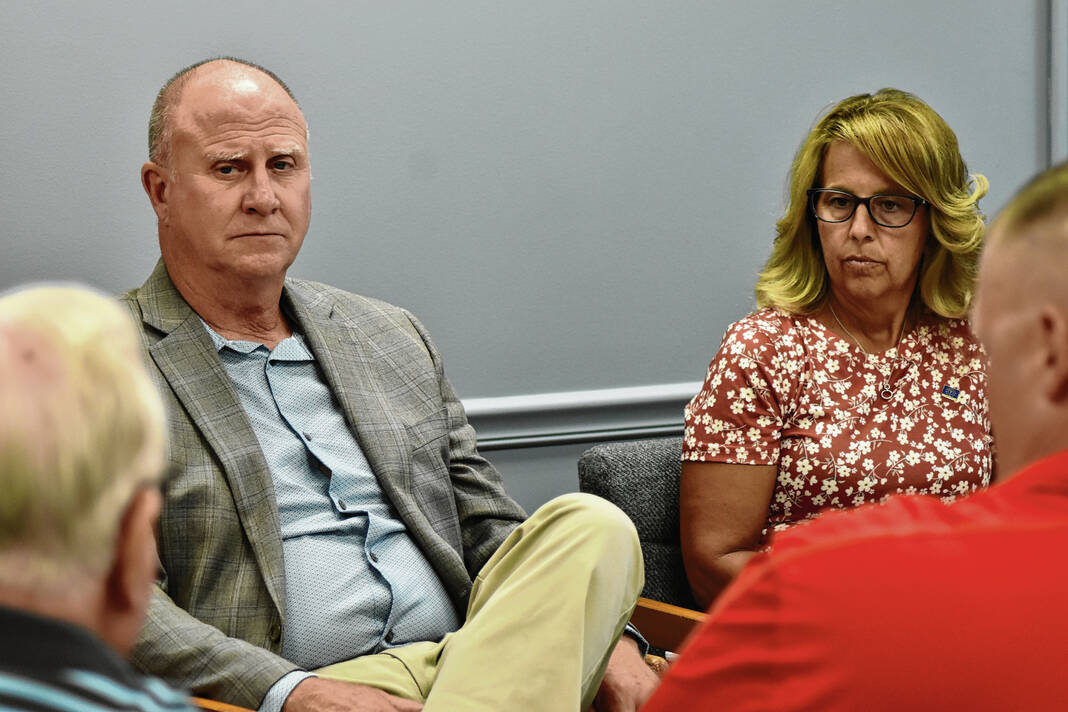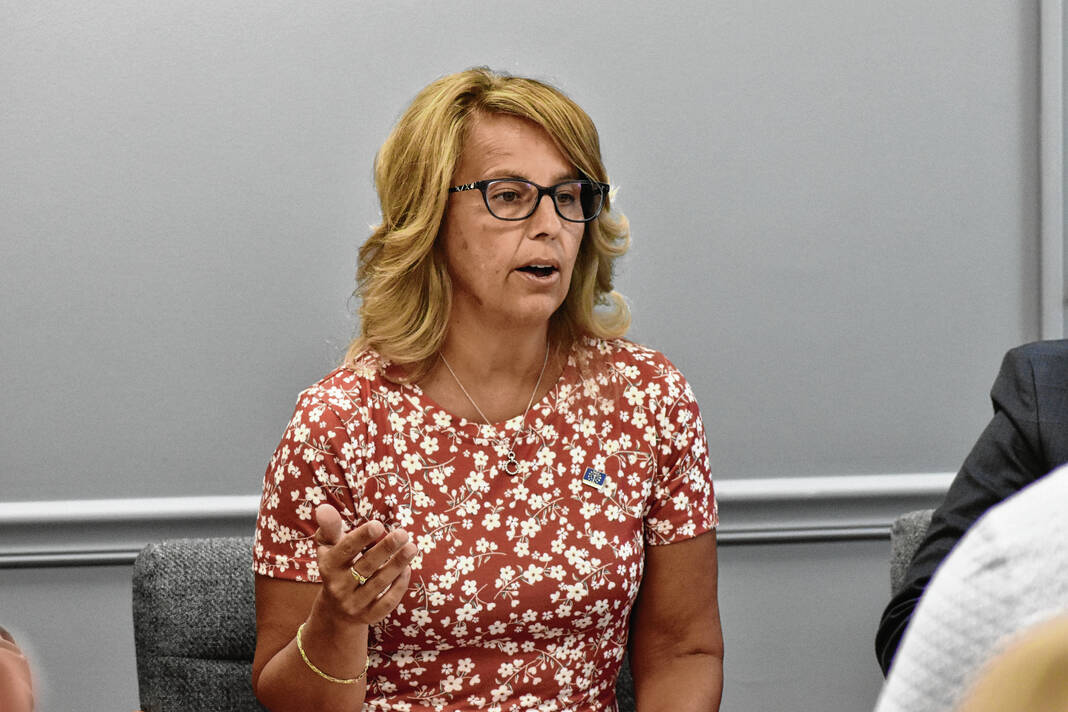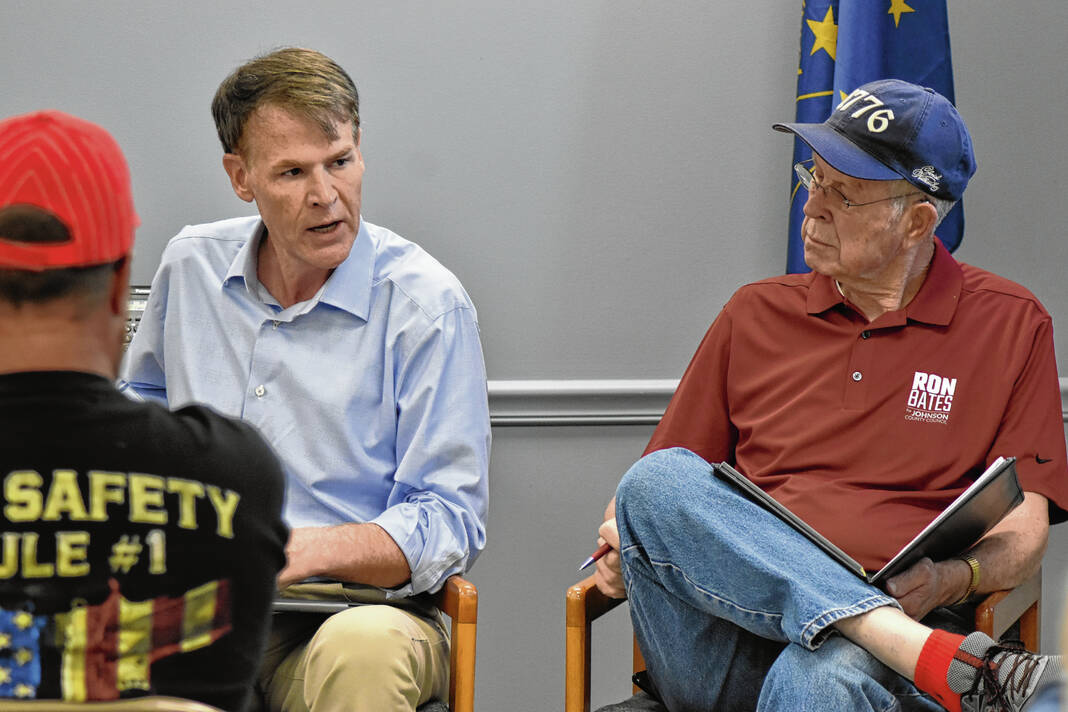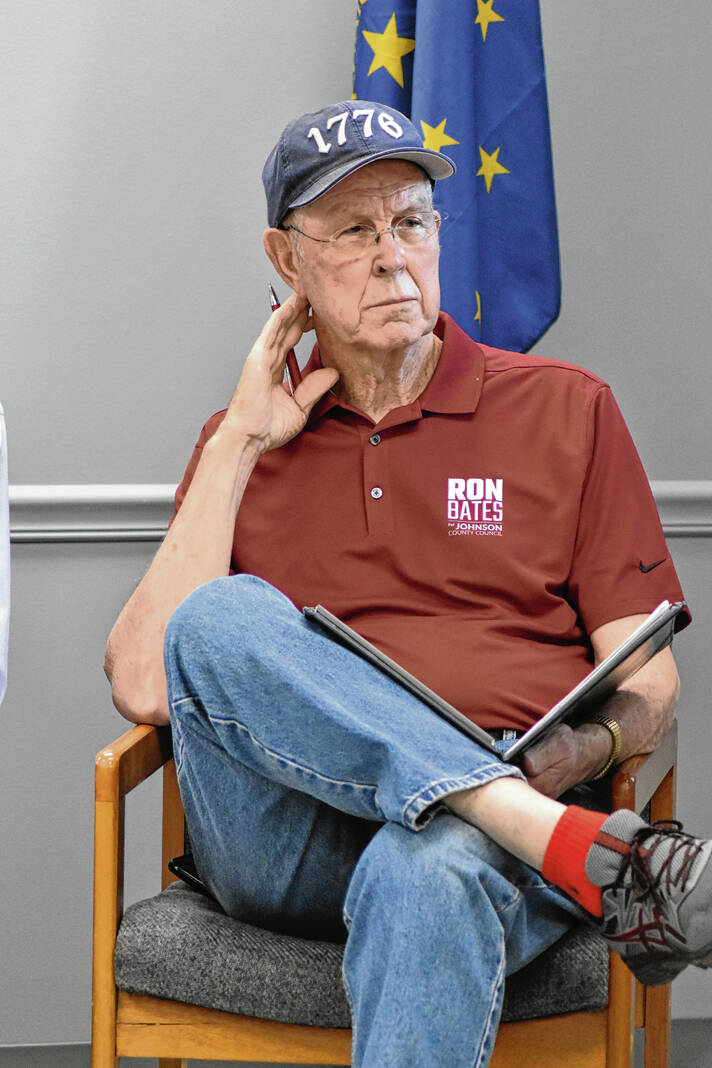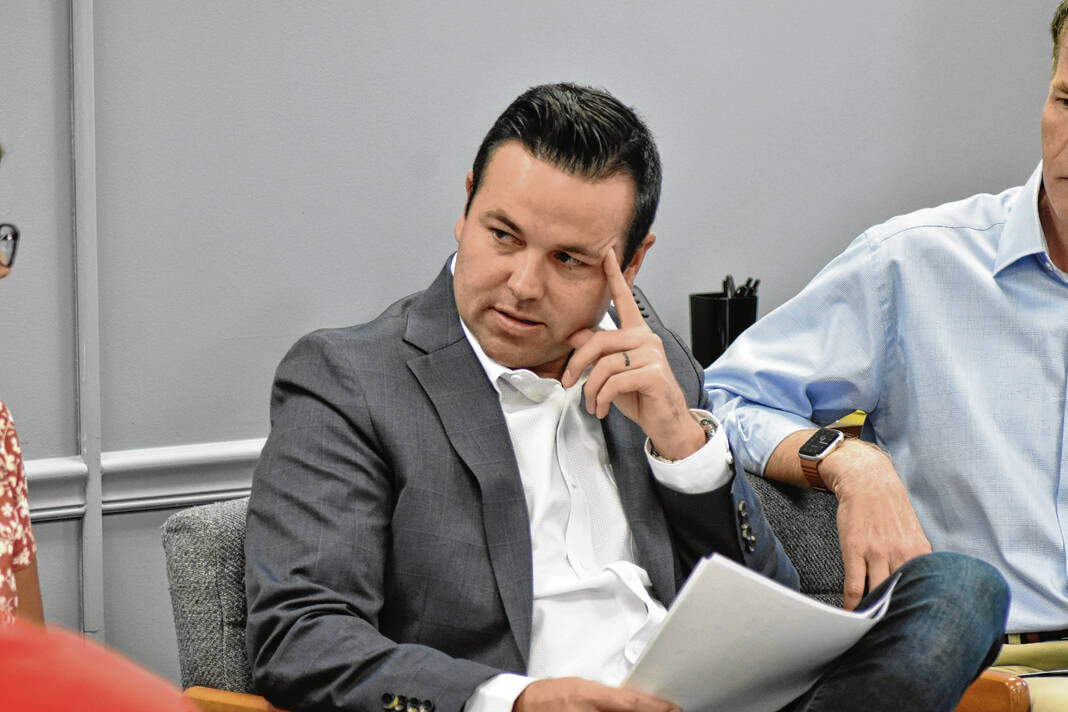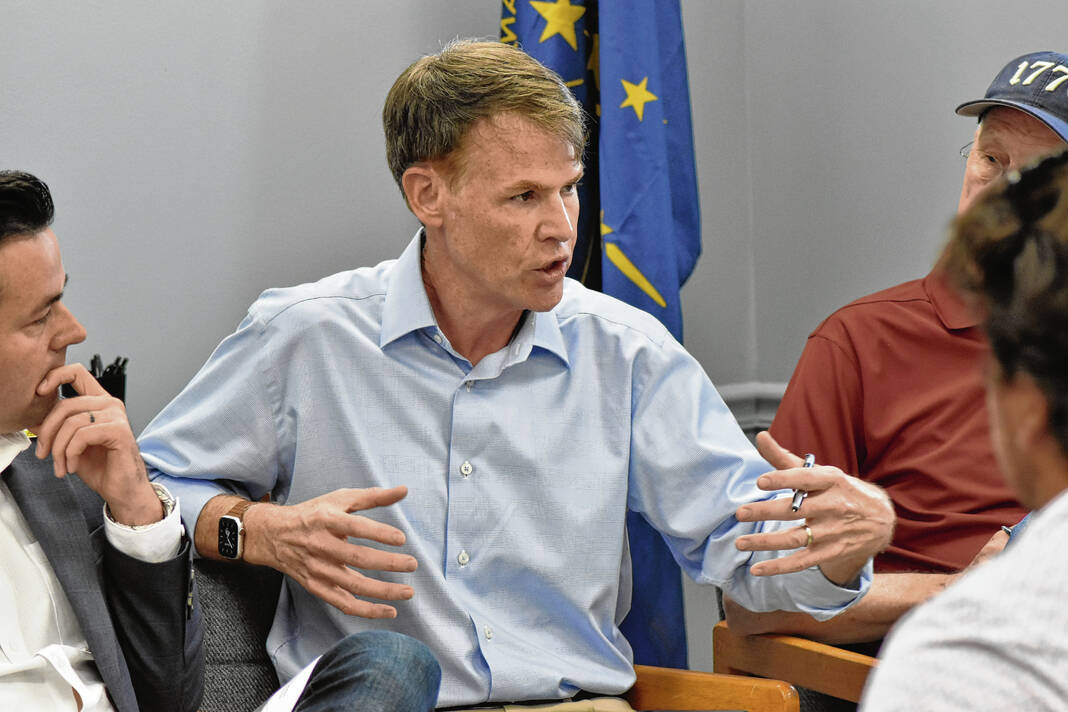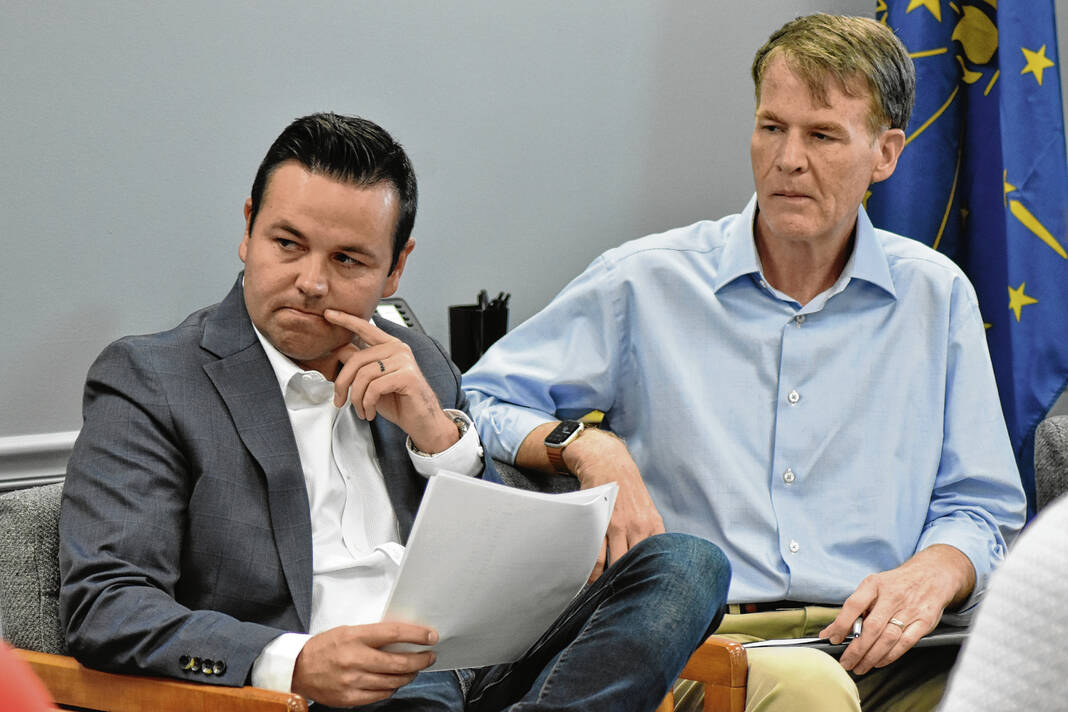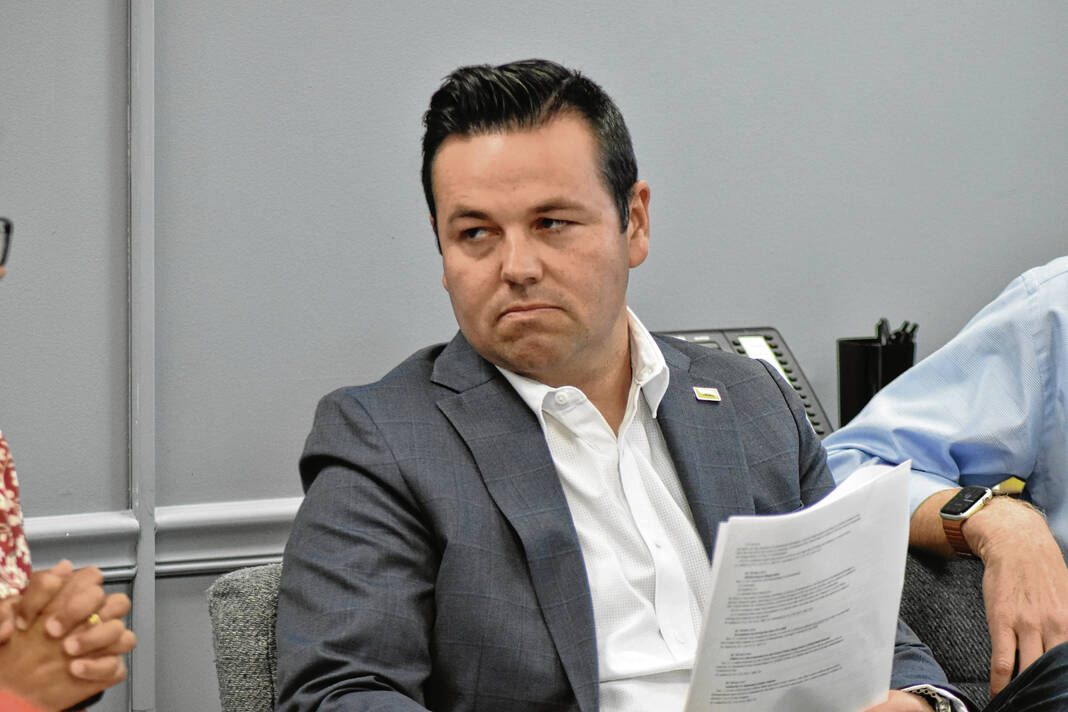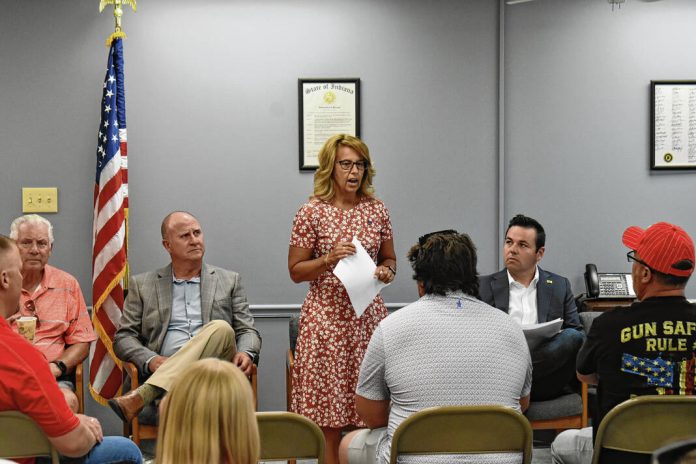
State Rep. Michelle Davis, R-Whiteland, gives introductory remarks at the start of her town hall on illegal immigration Thursday at the Pleasant Township Trustee’s Office in Whiteland. Noah Crenshaw | Daily Journal
Candidates and officials from all levels of government heard Johnson County residents’ illegal immigration concerns firsthand Thursday night.
Dozens of community members expressed concerns about illegal immigration and questioned what the government could do about it during a town hall event in Whiteland. For over an hour, several community members spoke out during a town hall organized by State Rep. Michelle Davis, R-Whiteland. The event was the second town hall Davis has hosted on illegal immigration in as many months.
About 35 residents crowded into a meeting room at the Pleasant Township Trustee’s Office in Whiteland to speak out about the issue, with Davis and a legislative staffer taking notes to gather ideas and answer questions on how it can be addressed at the Indiana Statehouse. Unlike the first town hall, which focused more on business impacts, Thursday’s event was intended to be more about local government impacts.
Officials who joined Davis were Johnson County Commissioners Ron West and Kevin Walls, Johnson County Council at-large candidate Ron Bates, 6th Congressional District candidate Jefferson Shreve and lieutenant governor candidate Micah Beckwith — all Republicans. Beckwith was not previously announced as attending, and Davis did invite Governor candidate Mike Braun to attend on Monday, but he was unable to. Franklin Mayor Steve Barnett, who was listed on an announcement as attending, did not attend.
Presenting research
Like at the past town hall, Davis provided those in attendance with research she had gathered on immigration. She emphasized she is for welcoming immigrants who are properly documented and vetted, but said people without proper documents were her concern.
To “get a feel” for the impact on the community, she researched the number of students and Clark-Pleasant and Greenwood schools who were English Language Learners — students who are learning English as a non-native language. The numbers of ELL students have increased over the last few years at Clark-Pleasant and Greenwood, she said.
The increase in ELL students can be attributed to students who have emigrated from a wide variety of countries. Clark-Pleasant officials have previously told the Daily Journal about 60 different languages and dialects are spoken in its school system. Greenwood officials previously said they’ve seen an increase in Punjabi, Hindi, Chinese, Japanese, Burmese, Chin and Haitian Creole-speaking students, in addition to students whose native language is Spanish.
Data on the number of students who could be illegal immigrants was not presented.
Davis also, again, expressed concern about how opportunities for youth to take part in trades will disappear if illegal immigration isn’t addressed.
“I don’t see our American youth on these job sites,” Davis said. “You can’t convince me that American youth don’t want to do these jobs.”
She again emphasized that lawmakers have not voted on legislation that would allow illegal immigrants to have driver’s licenses, she said.
Davis also highlighted a law that authorizes the Indiana Attorney General’s office to file lawsuits against any Indiana college, university or local governments that don’t enforce state laws banning sanctuary cities. Attorney General Todd Rokita warned several Indiana governments last month they’d face consequences if they didn’t comply with the law, which goes into effect July 1, the Indiana Capital Chronicle reported.
Expressing concerns
Before community members spoke, Beckwith asked questions about the research Davis presented. The U.S. government says illegal immigrants have to be educated, and he questioned why the federal government was “getting its hand in education in the first place,” he said.
“It has no business doing that. Why don’t we just say, as a state, no?” Beckwith said.
Davis said she believes it was a requirement of the federal funds the state receives.
Beckwith questioned if the education dollars the state receives from the federal government are worth complying with federal mandates.
“The juice ain’t worth the squeeze,” Beckwith said.
Some residents asked if there was any data locally about how illegal immigration is impacting the county, along with its schools. However, officials said they are limited on what they can ask those who file paperwork to go to school in a public district.
One resident expressed concern about how contractors have to have a license, but their workers don’t. The man implied this allows contractors to utilize illegal immigrants for labor.
Another man suggested that English be made the official language of the United States, saying it would provide uniformity and consistency.
People who come to the U.S. are welcome, but they have to learn the language, understand U.S. values and embrace them, Beckwith replied. If they’re going to be successful in America, they need to assimilate into the culture, he added.
One woman asked how officials could balance older illegal immigrants with their children who gained birthright citizenship when they were born in the U.S. Beckwith suggested changing federal law to end automatic citizenship for those born in the U.S. It is going to need to be fixed in Washington, he said.
Others asked about what current laws on the books could be used to help with illegal immigration. The governor could try using executive action, something Beckwith says he’d encourage Braun to do as his lieutenant governor. The “loving thing” to do would be to get the illegal immigrants back to their homeland, he said.
“Unless it is a true case of asylum,” Beckwith said. “In that case, then yes, we welcome them.”
The question is how, the man replied. Beckwith agreed.
Need for vision
People in attendance also said there should be a plan to address illegal immigration. Some suggested bypassing the federal government to address the issue, which they say is affecting Hoosiers.
Others also criticized Gov. Eric Holcomb and said they wished he would take a more hands-on approach like Texas Gov. Greg Abbott and Florida Gov. Ron DeSantis. Holcomb, however, did help Abbott’s efforts to reinforce the border by sending Indiana National Guard troops to Texas.
One man spoke passionately about the need for a clear vision for dealing with illegal immigration.
“Nobody wants this in this room for a lot of different reasons,” the man said. “Not that we don’t love people — legal immigration is a great thing — but [illegal immigration] is a nefarious operation. So what is going to be our vision?”
Having the town halls is a way to start the conversation, Davis said. The events give her feedback that she can take the leadership at the Statehouse to show this is an issue in the state and that residents are concerned about it, she said.
Residents also asked if there was a way to identify who was illegal and who was a legal immigrant since schools are unable to. Beckwith suggested lawmakers consider passing legislation that purposefully goes against federal law to force a court battle.
“We need our legislature to be bold and say, ‘We’re going to do something that’s going to that’s going to poke the bear of the federal government,’” he said.
One way residents felt illegal immigration could be addressed is by adding regulations and enforcement surrounding contractors and construction sites. Code enforcement or Occupational Health and Safety Administration inspectors could be tasked with ensuring everyone on a job site is there legally, one man suggested.
Illegal immigrants who are working as a subcontractor and are given a 1099 form are being misclassified, they argued. People could give a fake Social Security number on the form, leading to tax evasion, residents said.
Another man suggested fining contractors who employ illegal immigrants. Another resident added to this by saying contracts should remove a clause that says “knowingly employ” to just say “employ” to increase enforcement and consequences.


